Roses in Five Senses
June 19, 2022
“Recently, I spent a day at the cottage where I used to live, and noted with a pleased surprise – to be exact, it was a feeling of having done good unconsciously – the progress of the things I had planted nearly 10 years ago.” George Orwell
Arms heaped with groceries, papers, rain coat
I pause
to admire the admirers
photographing roses along my front sidewalk.
“I’m glad you appreciate them,” I reply to their apologies as they lower their gaze to my burden, my bundles, the dailyness in my arms.
To be interrupted by the transient bloom of a rose:
it’s scent,
beauty of form,
the buzz of bees from one to the next,
the taste of floral-infused dew,
smoothness of petal caress,
is a gift I’ll always make time for.
Especially in the full days of June.
Hustle and bustle,
family and work,
and car fire,
graduation,
doctor’s appointments.
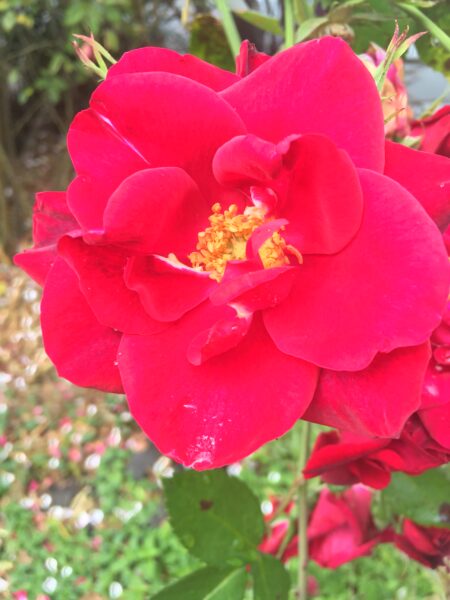
“Scent is a kind of voice, a way in which flowers speak—“caresses floating in the air’” the poet Rainer Maria Rilke called it.”
Smell:
Under the arching limbs of
a beast of a climbing rose,
a white one named ‘Darwin’s Enigma’,
for the puzzle of its origin,
I pause my pruners,
close my eyes,
pull in the honey scent
with my whole body,
deep to the place of memories
of ease, pleasure, joy,
fragrant bliss.
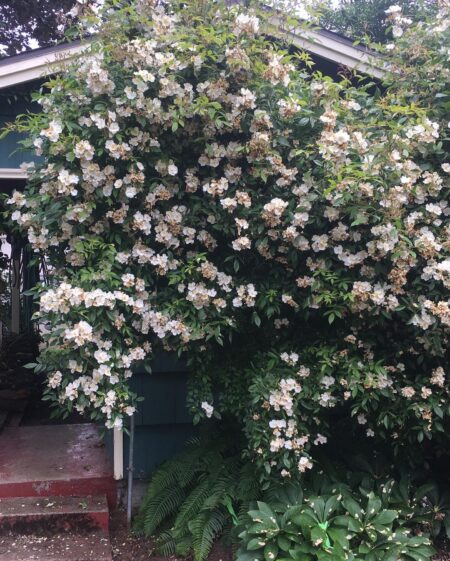
“What sustains us is often subtle and elusive.”
Taste:
And the freshness is delicious.
My old friend Emily taught me to drink the dew from roses,
lips kiss the blossom and taste.
Another gathers petals at their peak,
before the slumping wither,
but after the withheld potential in bud,
she layers honey, petals, honey,
playing the bee queen,
aphrodisiacal gift giver.
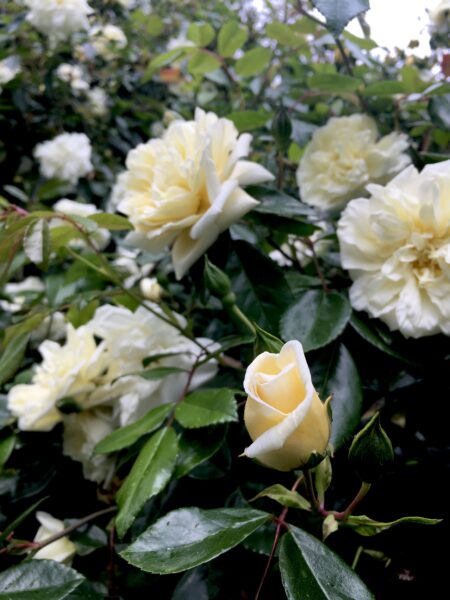
“We fight for roses too.”
Touch:
My mother’s skin
is a rose petal.
Not thick like magnolia
or waxy like a tropical bloom.
Her petaled hands serve bread
and roses, too,
the nurture of touch.
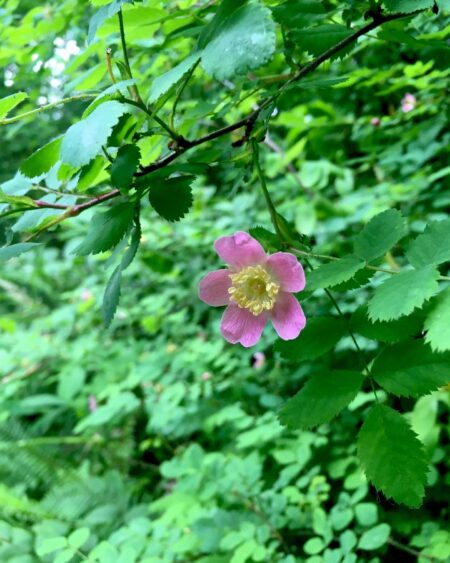
“Close attention itself can be a kind of sustenance.”
Look:
rose red,
rose gold,
white blushed pink,
multihued Joseph’s Coat,
or clear wild pinks.
A rose in bloom draws your gaze,
tugs your eyes,
a natural aid to learn the mask-wearer’s
smeyes.
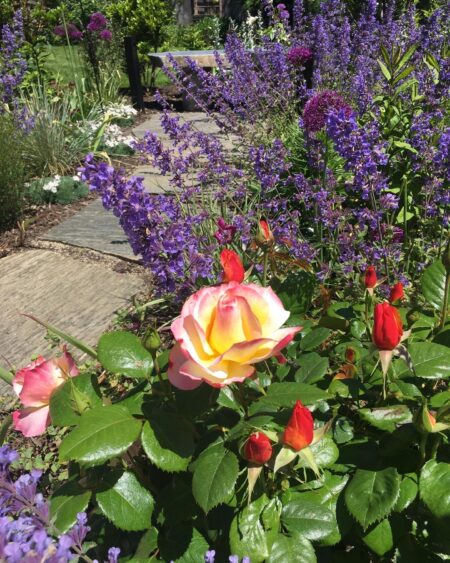
“Our job,” George Orwell declared, “is to make life worth living on this earth, which is the only earth we have.”
Listen:
standing seven or eight feet tall,
native Nootka rose makes a better fence
than cedar boards.
Can your static fence finch-sing,
bee-buzz,
or make wind music?
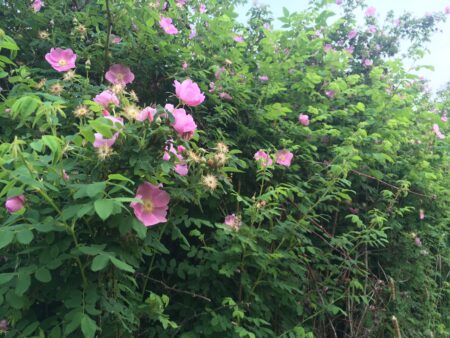
“Something that will never fade or die was never fresh.”
Today the roses are haggard, spotted like bananas left in the fruit basket too long, wetly wilted. Who’s to blame them? Not the hawk on the side of the freeway in the downpour, ruffling the wet from her back, not me in my warm office watching drops chase each other down the pane. There’s a peak moment that can’t be ignored, exactly because it ends, is impermanent, when the rays goldly bathe and coax bud to unfurl, the glow of the sun in the heart of pollen. Abuzz, abuzz. Wild roses, garden roses, thickets, or long-stemmed, stiletto-heeled coddlings, all roses have this moment that comes and goes. Stop, even when burdened, especially when burdened, and smell, taste, look, listen, touch.
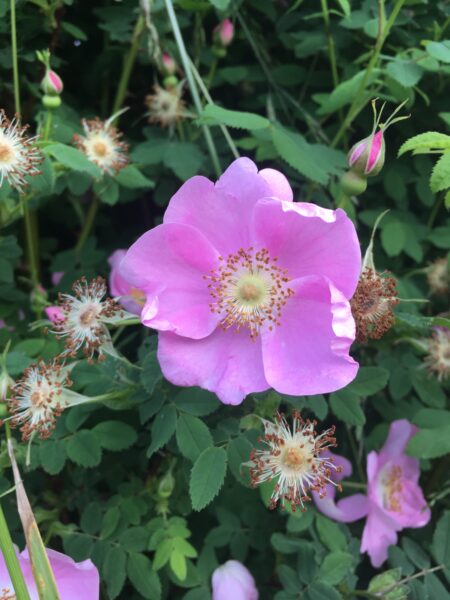
*all quotes from Rebecca Solnit’s Orwell’s Roses.

Thank you for feeding me today! Lovely, tactile writing. Just right for my ease into evening hours today.
Thanks for reading, Jenni! I’m glad you enjoyed it.